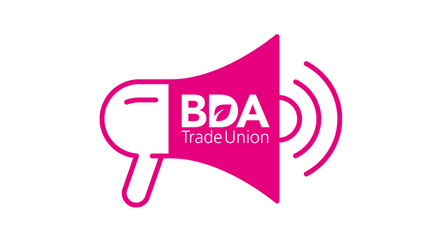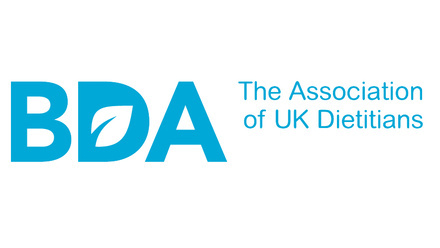BDA NI Board have been busy preparing a response to a Department of Health NI consultation for a new Integrated Care System for NI. This is to replace the existing commissioning arrangements.
The new model aims to bring about much needed changes in terms of transforming how health and social care services are planned and managed to meet the needs of a growing and changing NI population. BDA NI Board are aware the current system is complex, bureaucratic and no longer meets the needs of today's society.
BDA NI Board are concerned the suggested model is not clear on how governance will be managed, including standardisation of care. The Board’s key concern about the new model however is lack of clarity on where Allied Health Professional advice is coming from. Leaving out Allied Health Professional oversight, including Dietitians, is going to put the new model and more importantly services at risk of safety and quality issues.
For info the full Consultation documentation is at:
Future Planning Model - Targeted Stakeholder Consultation | Department of Health (health-ni.gov.uk)
BDA response
Q1. Section 3 describes and defines what an Integrated Care System (ICS) model is which provides the blueprint for how we will plan, manage and deliver services in NI moving forward.
Do you agree that this is the right approach to adopt in NI?
Agree.
Additional comments:
BDA NI Board agrees with the overarching principle of the proposal. However, we have concerns that the approach is potentially removing a legal protection for patient safety in NI, and removing a layer of governance.
We agree the operation of future commissioning arrangements should be redesigned and must promote greater involvement of frontline health and social care professionals in decision making and service development in partnership with service users and community and voluntary sector organisations to drive the change and innovation needed. We have serious concerns however that under the proposed arrangements, there is no requirement to have Allied Health Professions (AHPs), including Dietitians input enshrined. As the second largest workforce in NI, Allied Health Professions need to have a voice and a seat at the decision-making table. We feel strongly that there are gaps and we cannot see where there is definite Allied Health Profession representation included. We are also concerned that it is going to result in an unwieldy process. BDA NI Board believe a legal requirement through statue is imperative, to ensure professional oversight from Allied Health Professions is included in the new model.
BDA NI Board also recommends the need for caution in other areas:
By devolving decision making locally, rather than regionally there is an increased probability of creating further “postcode” variances throughout NI. In future services maybe modelled and delivered quite differently throughout NI, leading to further inequalities, including that of resource allocation. As always, this may also be partly due to historical commissioning of services and therefore what is currently available
When devolving commissioning decisions to local level it is essential to provide clarity on who should be involved to ensure the traditional medical/ nursing model is not maintained. To ensure the vision for this framework is achieved i.e. “no more silos” the inclusion of AHPs, voluntary / community sectors and other partners in the prevention and delivery of services is required i.e. true collaboration and partnership.
Q2. Section 5 sets out the Values and Principles that all partners will be expected to adhere to.
If applicable, please comment on anything else you think should be included.
Comments:
BDA NI Board agrees with all the values and principles enclosed. However, due to variance within organisational structures and associated reporting mechanisms, it would be important to ensure proactive and direct engagement with Nutrition and Dietetic professional / service managers. Direct engagement with these professional leads would ascertain if inclusion / involvement of Dietitians at an area / local level would be beneficial, dependent on the particular the areas of planning, commissioning and delivery that are being considered.
Q3. In line with the detail set out in Section 7 do you agree that the Minister and the Department’s role in the model should focus on setting the overarching strategic direction and the expected outcomes to be achieved, whilst holding the system to account?
Agree.
Additional comments:
BDA NI Board agrees, the Minister and the DoH should continue to be given its role in setting the strategic direction and the expected outcomes to be achieved.
We strongly recommend there would be engagement with Nutrition and Dietetic Services and other Allied Health Profession services to ensure the expected outcomes are deliverable and reasonable.
Q4. Section 8 sets out what the ICS model will look like when applied to NI. It is based on the principles of local level decision making which will see a shift of autonomy and accountability to local ICS arrangements. Do you agree with this approach?
Agree.
Additional comments:
As referred to earlier within our response, BDA NI Board agrees with the overarching principals of this document.
However, we strongly recommend regional direction is provided with clear objectives and expected outcomes, so as to allow effective and joined up local level decision making to occur. We question how the proposed new structures will relate to one another, and what will be the balance of power and influence between them.
The success of implementation of this approach depends on the successful set up and configuration of area, local and community groups. We wish for assurance that the changes will support genuine multi agency partnerships that span the HSC, local government/councils, voluntary, community and social enterprise organisations. BDA NI Board recommends clear lines of accountability and transparency need to be developed. This applies especially around how and where decisions are made, at the same time as allowing flexibility for locally led change. This would ensure all the necessary active collaboration and partnership occurs, thereby assisting with delivery of effective positive outcomes.
BDA NI Board have key concerns regarding the risk within the proposed new model for significant variation of models of working and therefore commissioning. The negative impact of this could lead to a great level of inequality of service provision and funding and also differences in outcomes such as between the least/ most deprived (as described within the introduction of this consultation). We urge prioritisation is given to the reduction of health inequalities as a central focus. BDA NI Board therefore strongly recommends the new model finds and clearly defines new ways of working more closely with and alongside local communities as key partners.
To note – within the “community level” it refers to MDT involvement (where established). More direction should be stated i.e. that MDT involvement should occur, regardless of whether it is currently in situ (as this would be the preferred approach to ensure the wider collaboration and would assist with ensuring the preferred option is commissioned). BDA NI Board strongly advises this MDT involvement includes Allied Health Professionals, including Dietitians.
Q5. As detailed in Sections 8 and 9, a Regional Group will be established to undertake an oversight, co-ordination and support function for the ICS. Do you agree with this approach?
Agree.
Additional comments:
BDA NI Board agrees to regional oversight/ co-ordination and support – as this should ensure equitable service provision and associated models and commissioning throughout NI, whilst still enabling the local needs to be considered. We recommend including and actively involving, the Chief Allied Health Professions Officer in this regional group.
Q6. As detailed in Sections 8 and 10, do you agree that the establishment of Area Integrated Partnership Boards (AIPBs) is the right approach to deliver improved outcomes at a local level?
Agree.
Additional comments:
BDA NI Board agrees there is a need for a strategic oversight within each HSC Trust area. Presently, Trust Delivery Plans and saving plans must have approval from Nutrition and Dietetic professional leads. We need assurance this professional oversight is mandated in the new model to ensure safety, quality assurance and reduce risks.
Q7. Section 10 of the framework provides further detail on the local levels of the model, including the role of AIPBs.
Do you agree that AIPBs should have responsibility for the planning and delivery of services within their area?
Agree.
Additional comments:
Yes, it would be important each HSC Trust has the oversight of local planning/ delivery.
However, BDA NI Board strongly advocates for robust commissioning with governance, safety and quality must at the core. We believe this can only be achieved, through professional input and challenges, Allied Health Professional input, including Dietitians.
Q8. Do you agree that AIPBs should ultimately have control over a budget for the delivery of care and services within their area?
Agree.
Additional comments:
Yes – as this would enable flexibility should there be difficulty with recruitment/ retention as the monies/ budget may be reconfigured, as required.
However, robust commissioning needs not just rigorous financial accountability and evidence of good performance but governance, safety and quality must also be at the core. As previously proposed, BDA NI Board strongly recommends this is achieved through Allied Health Professional input, including Dietitians.
Q9. As set out in Section 10, do you agree with the proposed minimum membership of the AIPBs?
Agree.
In addition to the strong recommendation to incorporate Allied Health Professionals, including Nutrition and Dietetic Services input, BDA NI Board offer the following suggestions:
Depending on how each HSC Trust is structured, it would be essential that ICT are included within the membership or at the least the Director with responsibility is within the minimum membership. This would ensure provision of necessary/ appropriate equipment/ technology.
As the vision is to ensure improved population health there would be benefit in inclusion of Directors overseeing children’s services and those for mental health and learning disability. The latter would also ensure good consideration of equality section 75 for any developments being considered.
BDA NI Board recommends all Directors should be required to be members. However, a quorate agreed as part of the terms of reference for the AIPBs would enable a level of flexibility in attendance. The topics discussed during meetings may then influence which Directors are required to attend at particular meetings.
Q10. As set out in Section 10 of the framework (and noting the additional context provided in Annex A of the document), do you agree that initially each AIPB should be co-chaired by the HSC Trust and GPs?
Agree.
Additional comments:
BDA NI Board agrees the AIPBs should be co-chaired as this may strengthen collaboration and accountability arrangements for ensuring achievement of objectives and outcomes. It should also enable improved partnership working.
Q11. The framework allows local areas the flexibility to develop according to their particular needs and circumstances.
As set out in Section 10, do you agree that the membership and arrangements for groups at the Locality and Community levels should be the responsibility of the AIPBs to develop, determine and support?
Agree.
Additional comments:
n/a
General Comments
Please add any further comments you may have:
The new model aims to bring about much needed changes in terms of transforming how we plan and manage our health and social care services to meet the needs of our growing and changing NI population. BDA NI Board are aware the current system is complex, bureaucratic and no longer meets the needs of today's society. This is an opportunity now to get it right, however it must include all the right elements to ensure it stands up to scrutiny for the next number of years.
BDA NI Board are concerned the suggested model is not clear on how governance will be managed, including standardisation of care. We consider there is insufficient representation from the community, voluntary and carers sector, also inadequate service user involvement. BDA NI Board’s key concern about the new model however is lack of clarity on where Allied Health Professional advice is coming from. Leaving out Allied Health Professional oversight, including Dietitians, is going to put the new model and more importantly services at risk of safety and quality issues.





